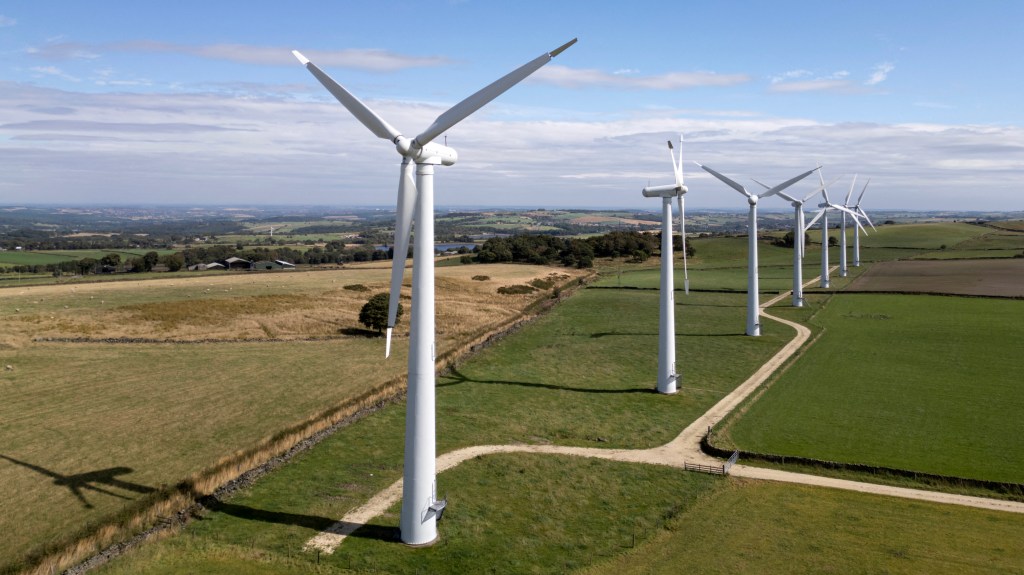October Energy Price Cap: Bills to Increase 10% This Autumn
Energy bills for most households in Britain will rise by an average of £12 a month to £1,717 a year starting October 1, adding financial pressure on millions of people.
Ofgem raised the price cap by 10%, from £1,568 for the current quarter, in response to a rebound in wholesale gas prices amid global political unrest and extreme weather events.
This is the first time that the energy watchdog has raised the price cap since January last year when it reached a record high of £4,279 annually. The war in Ukraine caused energy prices to surge, prompting the government to subsidize bills, capping them at £2,500 annually for a typical household.
Britain’s reliance on American liquefied gas imports has increased since the Russian invasion of Ukraine, contributing to the volatility of wholesale gas prices.
Energy bills are predicted to rise by another £45 to £1,762 from January, according to consultancy Cornwall Insight.
The price increase will add pressure on millions of Britons who have struggled with rising energy costs. Unrecoverable bad debts have surged to a record £3.3 billion, according to the energy watchdog.
“We know that this rise in the price cap will be extremely difficult for many households,” said Jonathan Brearley, Ofgem’s chief executive. “Anyone struggling to pay their bill should ensure they have access to all entitled benefits and contact their energy provider for additional help and support.”
The regulator has outlined plans to reduce standing charges, the fixed costs on bills covering the delivery of energy to households. However, abolishing the standing charge altogether could increase energy bills by about 10% for around half a million low-income households with high energy usage.
Ofgem announced a detailed review of the cap this year, suggesting significant changes to the way it is calculated, particularly the daily standing charge, which costs a typical consumer hundreds of pounds a year before any gas or electricity is used. The price cap for the October quarter assumes a daily standing charge of 60.99p for electricity and 31.66p for gas, slightly up from the previous quarter.
Approximately ten million pensioners are expected to struggle in the colder months after the chancellor removed the winter fuel allowance for those not receiving pension credit or other means-tested benefits.
European wholesale gas prices are nearing their highest levels since February at €36.7 per megawatt/hour, rising from a 30-month low of €24 per MWh. This is still around 89% below the peak of August 2022.
Jess Ralston, head of energy at the Energy and Climate Intelligence Unit, warned that high gas prices and Britain’s dependence on the fuel for home heating and electricity generation would result in winter bills being on average 50% higher than pre-crisis levels.
“A lack of progress on energy efficiency and heat pumps means our reliance on gas hasn’t reduced much in recent years, despite market volatility,” she said.
The government introduced the energy price cap in 2019 to limit the price that suppliers can charge households for gas and electricity on standard tariffs. It is updated regularly based on the regulator’s assessment of costs incurred by an efficient supplier.
“This will be deeply worrying news for many families,” said Ed Miliband, the energy secretary. “The rise in the price cap is a direct result of failed energy policies, leaving the country vulnerable to international gas markets controlled by dictators.
“The only way to reduce bills and achieve energy independence is through clean, homegrown power. That’s why we are lifting the onshore wind ban, approving record amounts of solar power, and setting the largest-ever budget for our renewables auction.
“We will protect billpayers by reforming the regulator to be a strong consumer champion, striving for fairer standing charges, and implementing a comprehensive warm homes plan to save families money.”
Claire Coutinho, the shadow energy secretary, criticized Labour’s plans. “Instead of focusing on cheap energy, the Labour government is pursuing Ed Miliband’s reckless net zero targets with no regard to costs,” she said. “Despite promises of saving families £300 on energy bills, they have removed the winter fuel payment from ten million pensioners this winter.
“Because of their lack of transparency, millions of pensioners are unprepared for higher energy bills this winter.”
Emma Pinchbeck, chief executive of Energy UK, said: “An increase ahead of winter will be worrying news for many customers and underscores the impact of global factors on fossil fuel prices.
“With energy debt at record levels, it is clear many customers are struggling even before this rise. Suppliers will continue to do all they can by offering financial and other support, and we encourage customers in difficulty to seek help.”




Post Comment